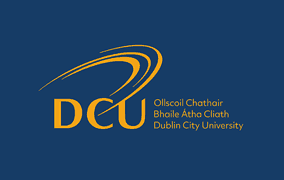4 p.m. Thursday 16th February 2023 in GLA.CG86, DCU
Şebnem Susam-Saraeva
University of Edinburgh, Scotland, UK
S.Susam-Saraeva@ed.ac.uk
The talk will provide an overview on the uses of ‘translation’ in climate crisis discourse in a variety of genres. Translation is used in three major ways in climate change research. First is ‘knowledge translation’ (KT), i.e. the dissemination of research findings on climate crisis to stakeholders, including the general population. The emphasis here is on ‘translating climate change effects into everyday language’ in order to facilitate climate science communication to non-experts. ‘Translating’ climate change research into concrete information that has immediate relevance to different sectors of society and to the economy is paramount in this field.
The second use of ‘translation’ in the context of climate change is closely related: it concerns translating information/theory/action plans into tangible action/viable projects/behavioural change. There is widespread agreement among researchers and activists that this type of translation faces many challenges, ranging from short-sighted policies to individual apathy.
Last but not least, inter-lingual translation plays a critical role in the discourse on climate crisis. The main focus here is on the translation of information about climate change through the medium of research papers, monographs and websites, as well as oral interpreting in major international events. Climate change action emphasises inclusivity and the global distribution of information regardless of linguistic, ethnic or national specificities. A less frequently discussed but equally interesting area is the translation of literature on climate change for children and teens. In recent years, there has been growing discussion on eco-anxiety, especially its effects on the younger population as the generation that is supposed to bear the brunt of the climate crisis. The translations are envisaged to counter-balance this anxiety with messages of hope and action.
The talk will delve deeper into these three different aspects/uses of ‘translation’ in climate crisis discourse, using examples from scholarly texts as well as media items based on relevant research (e.g. journalistic texts and blogs).
Bio
Şebnem Susam-Saraeva is a Senior Lecturer in Translation Studies at the University of Edinburgh, Scotland, U.K. Her research interests have included retranslations, research methodology in translation studies, internationalization of the discipline, and translation and gender, literary theories, popular music, social movements, maternal health and ecofeminism. She is the author of Translation and Popular Music. Transcultural Intimacy in Turkish-Greek Relations (2015) and Theories on the Move. Translation’s Role in the Travels of Literary Theories (2006), and editor of Translation and Music (2008), Non-Professionals Translating and Interpreting. Participatory and Engaged Perspectives (2012, with Luis Pérez-González) and the Routledge Handbook of Translation and Health (2021, with Eva Spišiaková). Susam-Saraeva’s literary translations into Turkish include Kazuo Ishiguro’s The Remains of the Day (1993, 18 reprints by 2022). She is also the winner of PEN Wales Translation Challenge 2017 with her poetry translation from Küçük İskender.

